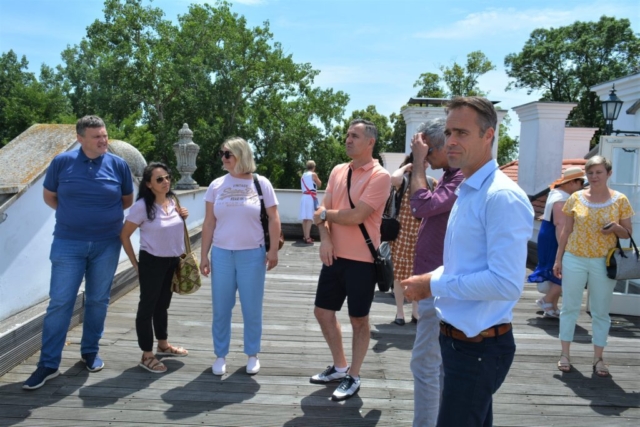Institutions participating in GASTROTOP:
1. MATE Campus in Kaposvár,
2. University of Economics in Križevci,
3. Polytechnic in Virovitica,
4. Chamber of Commerce and Industry of Somogy County,
5. Zala County Chamber of Commerce and Industry.
The goal of GASTROTOP: the goal of the program, which is co-financed by the Interreg program of the European Union, is to examine the possibilities of meeting the needs for special nutrition (e.g. medically neutral food, vegan diet, food allergy and intolerance) in the regions of the organizations participating in the program, in the Croatian-Hungarian border area (counties of Koprivničko-Križevačka, Virovitica-Podravska, Somogy, Zala and South Transdanubia). The program enabled the partners to research the needs and opinion of the population as well as the attitude, behavior and plans for the future of tourist entities, restaurateurs and other involved organizations (eg associations for the protection of interests, professional organizations). The program also enabled the partners to organize – among others – professional conferences, professional trips and courses (eg for chefs), create brochures, develop databases and websites. In addition to all this, GASTROTOP has enabled higher education institutions to organize study trips for its participants and to listen to professional lectures and develop ideas for the development of their own service or company within the framework of a one-week creative camp.
Method of participation of MATE Kaposvár campus in GASTROTOP:
– joint research (among the population and the profession) with Križevci University of Economics (University of Economics in Križevci);
– creation of a database for South Transdanubia on the website in preparation of the Polytechnic in Virovitica about places that offer medically neutral food;
– a two-day study tour and a four-day creative camp for 10 Croatian and 10 Hungarian students.
About the two-day study tour (September 12-13, 2022):
Target group: 10 Hungarian and 10 Croatian students
Goal: visiting the South Transdanubia tourist and hospitality destinations that have responded exemplary to meeting the needs of consumers for special diets (medically neutral food, vegetarians, vegans) or those suffering from food intolerance or allergy.
The representatives of the companies involved in the study trip briefly presented what it means for them to satisfy their medically neutral dietary requirements. The goal of the trip was to provide students with inspiration they will need within the creative camp.
Locations that were visited during the study trip::
1. Krishna Valley, Somogyvámos;
2. Restaurant Kistücsök, Balatonszemes;
3. Hotel Azúr, Siófok;
4. Hotel Kardosfa, Zselickisfalud, Kardosfapuszta;
5. Hunting house Togazda Safari, Somogyapáti;
6. Takler Manor, Szekszárd.
About the program part of the creative camp (September 14-17, 2022):
In the first two days of the creative camp, the participants were introduced to special dietary needs, ie dietary sensitivities from various professions (hospitality, food industry, dietetics, tourism).
In the second part of the program, student groups of 4-5 members created ideas and development programs that would indicate the direction of progress primarily in the visited locations in order to meet the needs for medically neutral food.
At the end of the program, the student groups presented their work to the expert jury, the topic of which could be an idea related to the visited places, the development of local services or imaginary companies, as well as suggestions related to the development of their communication activities.
The lecturers of the creative camp were:
1. Kanizsai Tóth Csaba, managing director, FÁN group (own brands and HoReCa);
2. Dr. Némedi Erzsébet, Managing Director, Expedit Nodum (nutrition trends, food of the future)
3. Kecskeméti Attila, Managing Director, Aby’s (unique customized raw materials);
4. Bősze Ákos, manager of the METRO HoReCa sector (adapted to HoReCa needs);
5. Strasser-Kátai Bernadett, Managing Director, Real Nature (dairy products and substitutes);
6. Dr. Barta Anita, president, Foundation for Children and Families with Food Allergy and Intolerance;
7. Erdélyi Alíz, Secretary General, MDOSZ (National Association of Hungarian Dietitians);
8. Bódi Krisztina, managing director, Marketing art d.o.o. / menteshelyek.hu (records places where medically neutral food is offered)


































